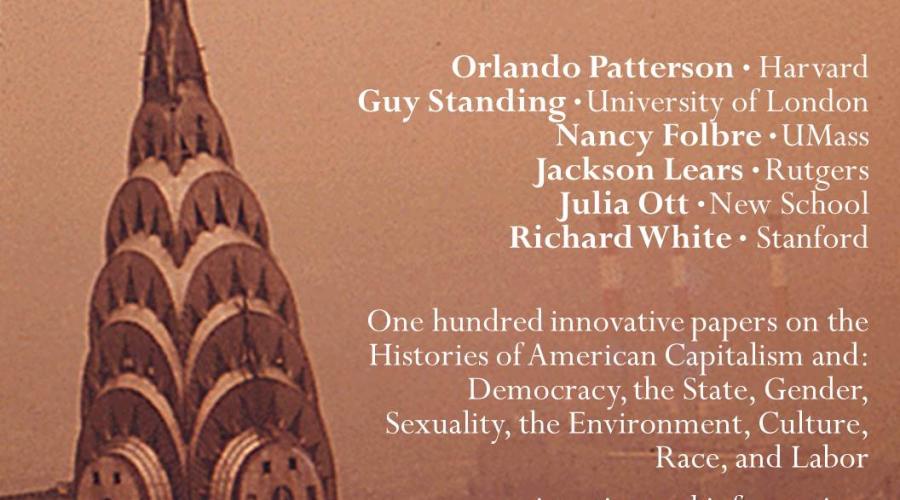
Histories of American Capitalism
The story of American capitalism is not one solely driven by the fuel of global conflict, technological innovation and titans of industry, but one further propelled by the gears and cogs of social, cultural and even environmental factors.
The inaugural Cornell Conference on the Histories of American Capitalism, starting Thursday and running through Saturday, brings together members of the historical community from across academia to take part in a cross-disciplinary discussion of how these lesser-studied factors spurred America’s evolution from the original 13 colonies to a global superpower.
Acknowledging its complexity, and the notion that the history of capitalism is not a single story, conference organizers have structured the event around five themes that are not always associated with the scholarly examination of history:
- race and ethnicity
- built and natural environments
- intellectual and cultural history
- democracy, state and nation
- gender and sexuality
"Instead of concentrating solely on key economic actors, or watershed moments of markets and finance, we seek to intertwine social history and issues of economy structure in order to tell a story that draws together work and Wall Street, policy and popular culture, and economics and the environment," says Jefferson Cowie. A labor history professor and the ILR Dean's Professor Chair, he played a key role in organizing the conference.
"Our hope is that by facilitating key questions of social and cultural history to meet head on with issues of political economy, the conference will allow for new perspectives on old questions, fresh ideas and new collaborations."
The public keynote address and kickoff will feature Orlando Patterson, the John Cowles Professor of Sociology at Harvard University. His talk, "Freedom and Disenchantment in American Capitalist Culture," begins at 7:30 p.m. Thursday at 423 ILR Conference Center in King-Shaw Hall off Garden Avenue.
The conference continues with five plenary addresses by leaders in the field and more than 100 papers presented by emerging voices and established scholars.
The conference is the brainchild of the History of Capitalism Initiative, which its organizers describe as Cornell's intellectual crossroads for ideas, programs, research and curriculum development on the histories of American capitalism.
According to Cowie, one of the initiative leaders, its focus is "to draw together the disparate fields of history – including the study of work, labor, politics, culture, gender, race, environment, the state, and economics – into a rich discussion about the development of capitalism."
Registration for the conference is now closed, but all are welcome to attend the panel discussions and plenary addresses free of charge.
The conference is sponsored by the ILR School with support from the ILR Pierce Memorial Fund, the Scone Foundation, the Cornell Institute for Social Sciences, the departments of History, Economics, American Studies, Africana, and Government, and the Program in Inequality.
Connect on Twitter through the conference hashtag: #HOC2014.